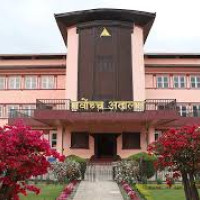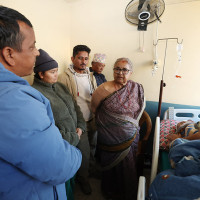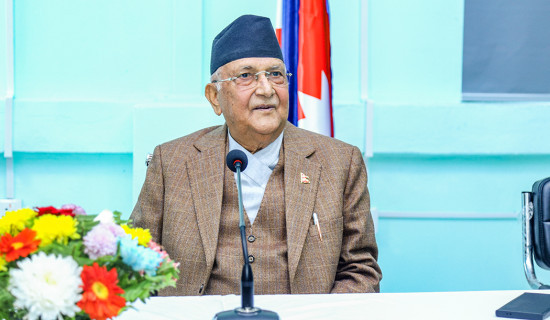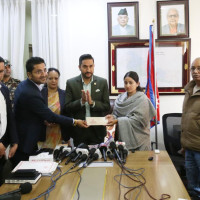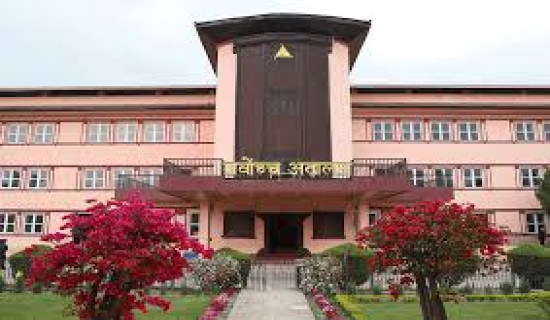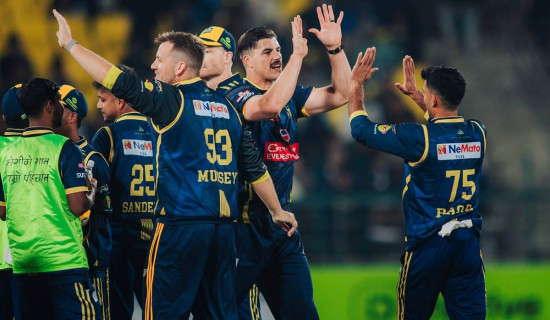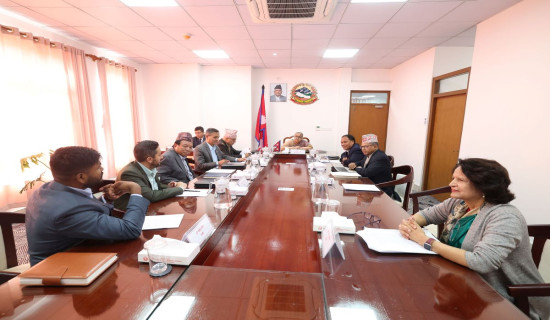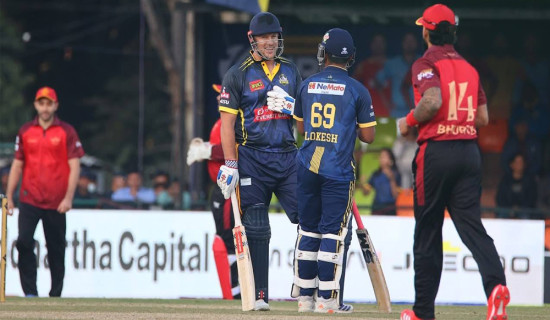- Tuesday, 18 November 2025
Debate on alternative politics: New party or alternative politics
Jagan Nath Dulal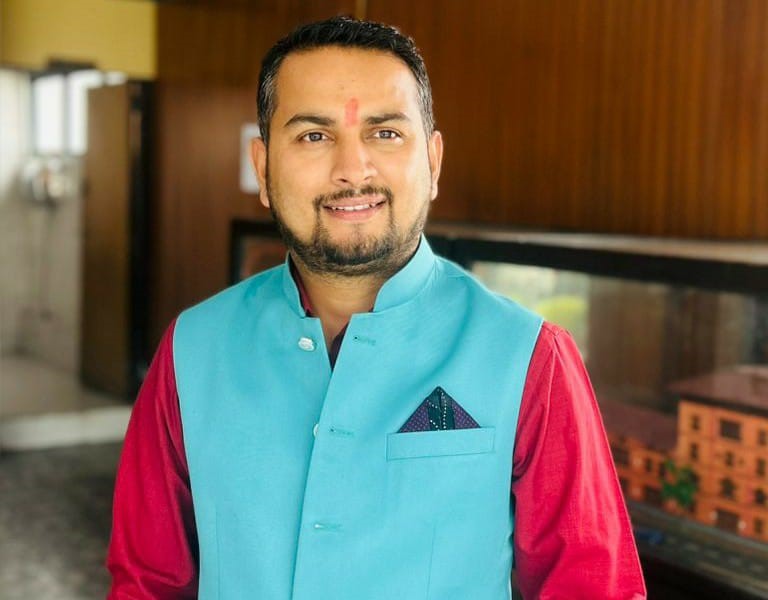
People are ready to devote tears and sweat to the country. But it is stuck in a vicious cycle of political uncertainty, let alone building.
In the last seven
decades, not a single political party completed a full term in government.
Precedent shows, in
every new decade, people agitate to change political system even before
allowing the established institutions to function properly.
Meanwhile, People were
hoping development of the country would proceed after the promulgation of the
constitution. However, no significant progress is being seen in the development
process compelling people to look for a foreign job.
The desperate people
are looking for alternative politics led by a visionary leader.
Amid this, the
overwhelming electoral victory of some of the new parties reignited a debate of
the possibility of alternative politics. But, the question is do we really need
a new party or a new leadership from old parties could pursue alternative
politics.
Emergence of new
parties
In the modern Nepal,
communists and democrats are the main pursuant of national politics. Foundation
and martialing of their cadres are based on respective ideologies.
However, a tangible
difference cannot be seen in the governance proceedings from either party while
leading the government.
Disillusioned from these
old parties, people are susceptible to looking for an alternative political
front. But the question is what does alternative politics entails?
Also, it is intriguing
to know whether these new parties recently entered in politics have such an
alternative prospective to shoulder the burden of alternative politics.
Bibeksheel Sajha Party initiated
the idea of alternative politics. Youths had a special craze towards the party
in the 2013 constitution assembly.
The election symbol of dog
became an apple of the eye of people. Its candidates promised transparency and a
new vision.
Although the outcome of
the election result was not up to the mark, the initiative agitated people to
give a jolt to the old parties who were enjoying the taste of power without
being challenged.
Although, Bibeksheel
could not rise far, the political enthusiasts who were passionate about
entering politics found some clue to rise in politics.
The former Prime
Minister Dr. Baburam Bhattrai abandoned his old party to establish NayaShakti. He
said that he is willing to build a party with a mission establish a neo-socialist
system. But his attempt also fell short.
After the ebb of Bibeksheel
and Naya Shakti, a pursuit for a new political front shortly remained calm.
Suddenly, a surprising emergence
of Balendra Shah aka Balen and Harka Sampang reignited the debate on the
possibility of alternative politics.
Soon after the election
victory of Balen and Harka journalist Rabi Lamichhane caught the whim of people
and launched the Rastriya Swatantra Party (RSP).
People’s expectations
went up and started seeing the RSP as the alternative political front. However,
RSP’s political movies in the parliament shattered the hope of the voters.
Also, RSP didn’t have a
clear ideological political roadmap since the beginning of its journey. Rabi’s
popularity and desperation of people to see a different party were key factors to
attract the voters.
Following the RSP, Nagrik
Unmukti and Janamat also entered the parliament with a significant mandate.
Nagarik Unmukti party rose
to politics by agitating a certain community against ruling incumbent. It is
plausibly looking intends specifically towards indigenous community.
The case of Janamat
Party is also not far different from Nagarik Unmukti. Chandra Kant (CK) Raut gained people’s
verdict by the aggressive campaign against Madhesh based old parties.
But, the new parties
also have gotten onto the same track of shrewd politics as the old parties.
Subsequently, they culminated in a merely an additional party rather than an
alternative party.
Expectation of people
from alternative politics
None of the newly arrived
parties have shown the credentials to pursue alternative politics. They
rose in politics in a short span agitating people with the aggressive
anti-incumbency campaign.
The aspirants of
alternative politics particularly wish to see the development process going faster.
Development of India specifically took off at a new height after 1991 when Dr Manmohan Singh under
the leadership of P.V Narasimha Rao took decisive measures emphasizing specifically
on economic development risking political consequences.
Deng Xiaoping dared to take
decisive initiative to drive China to focus on development agenda despite its sensitive
politics.
Lee Kuan Yew is widely
revered for his incredible effort for taking initiative for development and
improvement in bureaucracy, education system, health, and foreign policy.
A common trait was that
all were politically consummated leaders with an inherent acumen to craft a way
forward to orchestrate the party to drive in the direction of development
process.
Not necessarily a new party but the people are ready to usher an experienced leader who has credibility to lead alternative politics for driving the country on the development agenda.
(The author is a journalist and an advocate.)

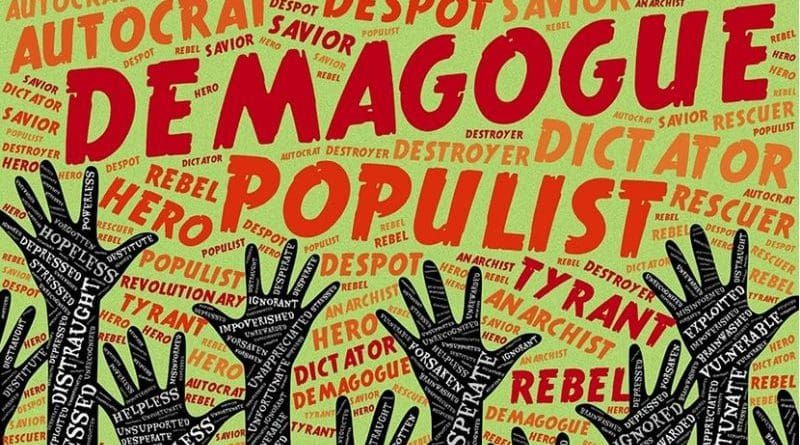

-original-thumb.jpg)
